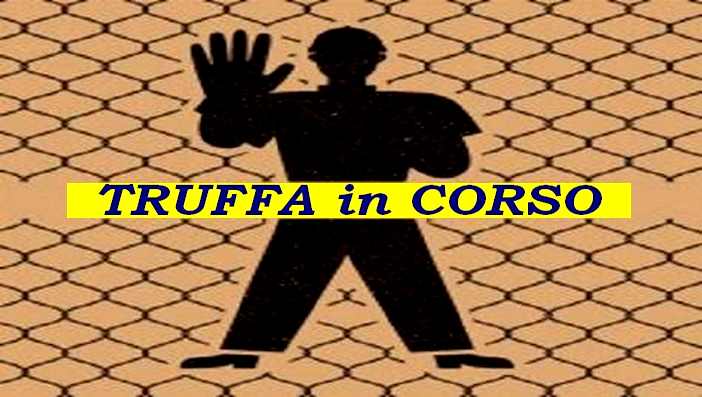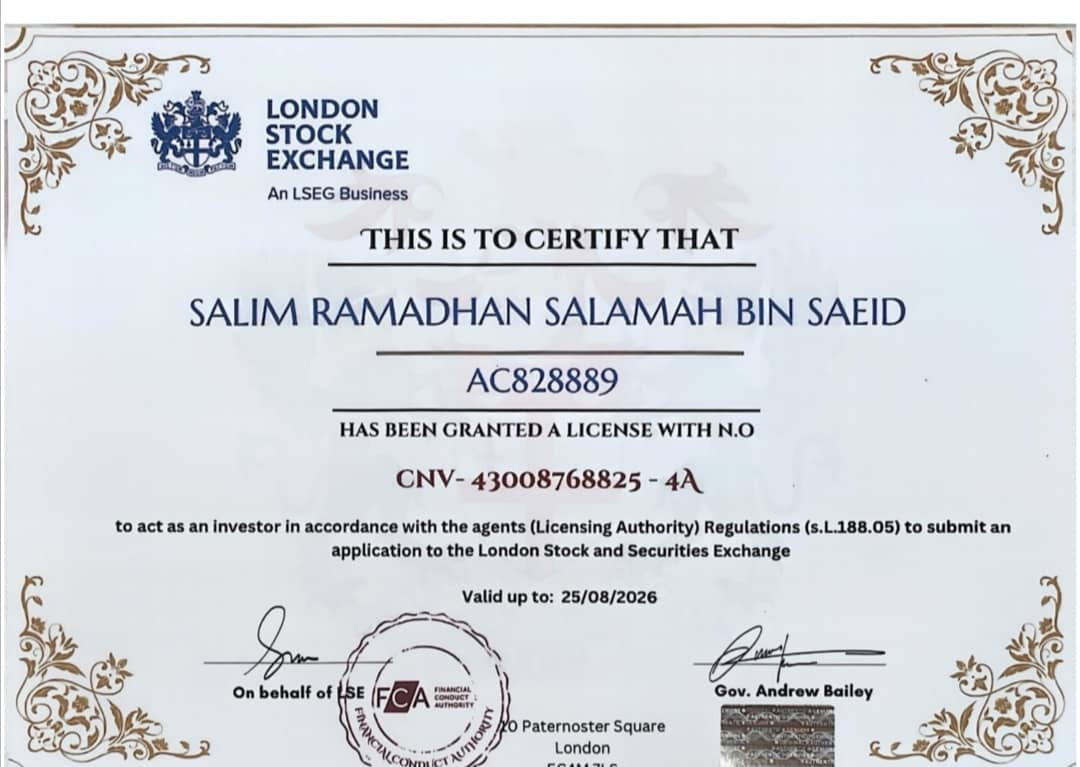
ref:topbtw-4313.html/ 27 Agosto 2025

1. Chi rilascia le licenze nel Regno Unito?
• Nel Regno Unito, solo la Financial Conduct Authority (FCA) (a volte congiuntamente con la Prudential Regulation Authority, PRA)
può concedere autorizzazioni a società e individui per svolgere servizi finanziari.
• La London Stock Exchange (LSE) è un mercato dove vengono scambiati titoli — non rilascia licenze a persone fisiche.
• Pertanto, un certificato di questo tipo non dovrebbe mai provenire dalla LSE.
2. Problemi di contenuto nel documento
• “License with N.O”?
È un inglese scorretto e una formulazione non professionale.
I documenti ufficiali del Regno Unito utilizzano termini precisi come “Authorisation Reference Number”.
• “London Stock and Securities Exchange”?
Nome errato.
L’istituzione si chiama London Stock Exchange.
Aggiungere “Securities” è un errore comune che si trova spesso nei documenti falsi.
• “To act as an investor”?
Gli investitori non hanno bisogno di licenze.
Solo broker, gestori patrimoniali, consulenti, ecc. necessitano dell’approvazione della FCA.
3. Problemi di formato e stile
• Decorazioni eccessive (bordi dorati, stile certificato).
Le autorità di regolamentazione del Regno Unito rilasciano PDF o lettere semplici e professionali — non certificati ornamentali.
• Nome in grande al centro (SALIM RAMADHAN SALAMAH BIN SAEID) — le autorizzazioni autentiche sono elencate in database,
non rilasciate in formato “certificato” con caratteri decorativi.
• Firme — i documenti FCA/LSE non sono firmati da persone di alto livello.
Sono timbrati digitalmente o forniti come lettere di riferimento in PDF.
4. Incongruenze di autorità
• Andrew Bailey è il Governatore della Bank of England.
Non ha alcun ruolo nel rilascio di licenze per FCA o LSE.
La sua presenza su questo certificato è una chiara falsificazione.
• Il logo FCA è usato in modo improprio.
Le autorizzazioni genuine della FCA non vengono stampate con sigilli ornamentali di questo tipo.
5. Numero di licenza sospetto
• “CNV-43008768825-4A” non corrisponde ai formati dei numeri di autorizzazione FCA.
• Le registrazioni autentiche FCA possono essere cercate per nome o numero di riferimento qui:
https://register.fca.org.uk
6. Perché questo è importante
Documenti di questo tipo vengono spesso utilizzati in frodi con pagamento anticipato o in falsi schemi di investimento.
Il truffatore mostra un “certificato di licenza” per guadagnare fiducia, ma in realtà le autorità di regolamentazione
del Regno Unito non emettono affatto questi documenti.

1. Who issues licenses in the UK?
• In the UK, only the Financial Conduct Authority (FCA) (sometimes jointly with the Prudential Regulation Authority, PRA)
can grant authorizations to firms and individuals to carry out financial services.
• The London Stock Exchange (LSE) is a marketplace where securities are traded — it does not issue licenses to individuals.
• Therefore, a certificate like this should never come from the LSE.
2. Content problems in the document
• “License with N.O” ? this is broken English and unprofessional wording. Official UK documents use precise terminology
like “Authorisation Reference Number”.
• “London Stock and Securities Exchange” ? incorrect name.
The institution is called London Stock Exchange.
Adding “Securities” is a common mistake seen in fake documents.
• “To act as an investor” ?
Investors do not need licenses.
Only brokers, asset managers, advisers, etc. require FCA approval.
3. Format and style issues
• Excessive decorations (gold borders, certificate style).
UK regulators issue plain, professional PDFs or letters — not ornate certificates.
• Big central name (SALIM RAMADHAN SALAMAH BIN SAEID) — authentic authorizations are listed in databases,
not given in “certificate” format with decorative fonts.
• Signatures — FCA/LSE documents are not signed by high-level individuals.
They are stamped digitally or provided as PDF reference letters.
4. Authority mismatch
• Andrew Bailey is the Governor of the Bank of England.
He has no role in issuing licenses for the FCA or LSE.
His presence on this certificate is a clear fabrication.
• The FCA logo is misused. Genuine FCA authorizations are not printed with ornamental seals like this.
5. Suspicious license number
• “CNV-43008768825-4A” does not match FCA authorization number formats.
• Authentic FCA registrations can be searched by name or reference number here:
https://register.fca.org.uk
6. Why this matters
Documents like this are often used in advance-fee frauds or fake investment schemes.
The fraudster shows a “license certificate” to gain trust, but in reality, UK regulators do not issue these documents at all.
( Gi.Com. )

SCRIVI: IL TUO COMMENTO

- Today' NEW contacts -
I lettori di questa pagina sono: